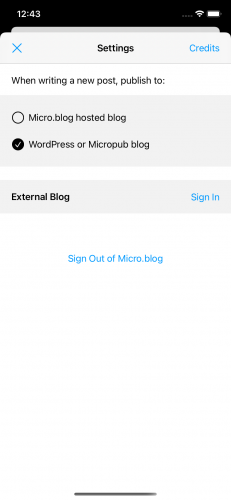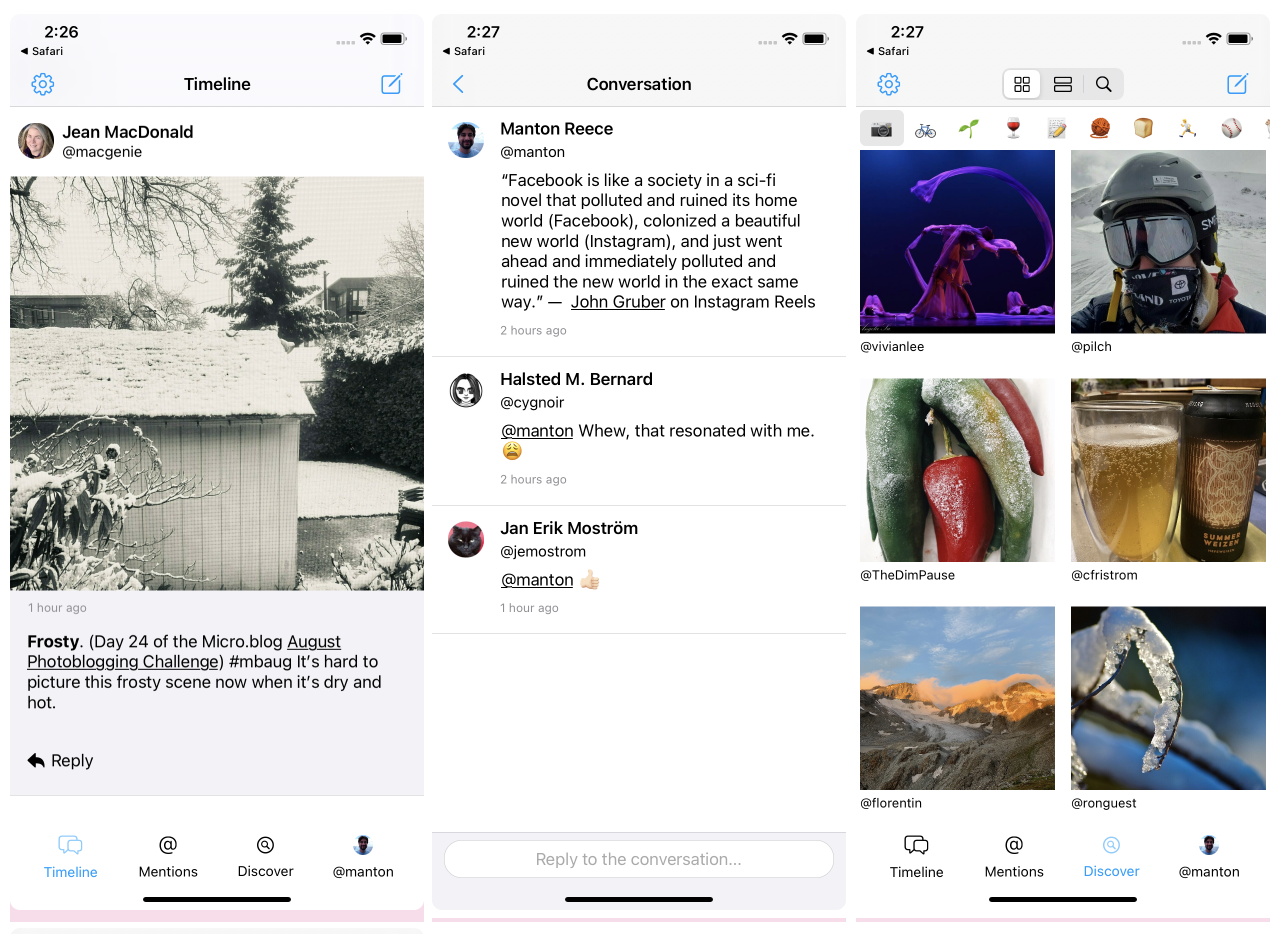Sunlit 3.0 was released this week and is now available in the App Store. The free photoblogging app is a companion app to the Micro.blog indie microblogging platform. Sunlit has some similarities to Instagram minus the deadweight of ads and algorithms. Users can follow each other, comment on posts, and timeline photos are displayed in chronological order.

“The idea is to get more people posting photos to their own blogs, whether that’s hosted on Micro.blog, WordPress.com, or a self-hosted WordPress,” Micro.blog creator Manton Reece said. Publishing to WordPress does not require any extra plugins, because the app uses the built-in XML-RPC support.
Sunlit uses Micro.blog’s infrastructure for the social aspect (replies and mentions). Users must be signed into a Micro.blog account (either paid or free) to view the timeline or reply to posts. In the current version, users are required to go to Micro.blog on the web to register first but Reece said his team is aiming to make this more seamless in the future so users can start using all the features in Sunlit right away.
“Some people use Micro.blog for their blog exclusively, and some people have a mix of a microblog or photoblog on Micro.blog, as well as a full blog on WordPress,” Reece said.
Sunlit also has support for following Tumblr photoblogs. In the app’s Discover tab, users can enter a Tumblr subdomain like “username.tumblr.com,” and then follow the blog even if the user is not on Sunlit.

“Micro.blog is based on blogs and IndieWeb standards so that it can integrate well with the rest of the web, not be walled off like a silo,” Reece said. “One aspect of this is that you can follow many blogs in Micro.blog even if the author of the blog hasn’t registered on Micro.blog yet, similar to how you can subscribe to blogs in a feed reader like NetNewsWire or Feedbin.”
Sunlit 3.0 has been redesigned with a new Discover interface and a faster, more flexible posting screen. Users can publish a quick photo or even a full blog post with text and photos uploaded to the users’ blog, along with the HTML layout for the post. This version also includes user search and support for mentions when replying to conversations.

Micro.blog is currently supporting the app’s development, and Reese said he has no plans to add any commercial upgrades into Sunlit.
“We support Sunlit as part of running Micro.blog,” he said. “Sunlit makes an existing Micro.blog subscription more useful, so it helps with the overall platform sustainability, even if not everyone using Sunlit is paying for a subscription. We hope that more people will sign up for a paid Micro.blog subscription, but it’s not required.”
Sunlit does not have an Android app but the teams would like to support Android in the future. The app is open source and available on GitHub under the MIT License.
“Because Sunlit for iOS is open source, this [Android support] might be something that comes from the community or it might be something we take the lead on. I personally have much more experience with iOS, so we started there.”


